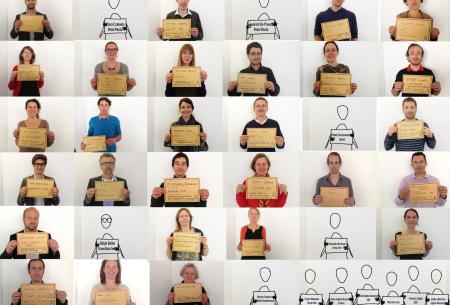
Resource description:
Workshop facilitation toolkit for the generation of business ideas/models linked to product service systems at the scale of urban agglomerations.
Author/Contact:
TURAS
Expert contact: Patrick Van Den Abeele
Requirements:
- Any department willing to make a link between specific local transition challenges and the potential business models this transition can create. In one application in Brussels, the regional environmental agencies worked with a consultancy to host a series
Advantages:
- The PSS toolkit described here is based on the notion of a "Product-Service System" (PSS), i.e. a system in which the service or function that is provided to a community of users and the products that are necessary for the underlying interactions are inte
- The PSS toolkit is a methodology using a combination of methods to generate and then pre-test ideas of potential business opportunities formulated around urban sustainability challenges in form of Product-Service Systems. The toolkit starts with a worksho
- In particular, the toolkit contains microtools allowing to test the systems by confronting their most critical/sensitive aspects in realistic simulations so as to "debug" the system (assess the viability of the solution, highlight the opportunities it rep
Constraints:
- Traditional industrial processes of product design often churn out oversized items with more functions and higher material throughput than customers actually value. At the same time, producers try to reduce production costs as far as possible, generally t
Uses of this resource:
The conventional approach to the design of new products and services has not actively involved end users. If local economies are supposed to deliver value for communities in a given place, a more prominent and active role has to be given to users. This creates the challenge for entrepreneurs to meet representative members of the local community and to engage in meaningful co-creation. Local authorities can be instrumental in this process. They also can make businesses more aware of local/territorial challenges and encourage them to integrate them into the design of new economic activities.
Additional information:
WHO SHOULD BE INVOLVED?
The following expertise is required to apply the different tools: animation of participatory processes, animation of multi-stakeholder workshops, expertise in new Business models, knowledge and trust of local landscape of entrepreneurs and potential users.
FACILITATORY (PUBLIC) BODIES:
socio-economic development department; environmental and sustainability department; community development department; strategic planning department
LOCAL TASK FORCE:
entrepreneur; investor; business; community group; professional expert; local or regional authority
SUITABLE FOR:
urban region; (sub-)urban communities
MAIN NECESSARY RESOURCES ARE:
monetary investments; local knowledge; expert knowledge; public institutional set-up
Licence:
- Free, no licence
Development stage:
- Full, working product
- wp6ms36productservicesystemtoolkit.pdf (13.21 MB)